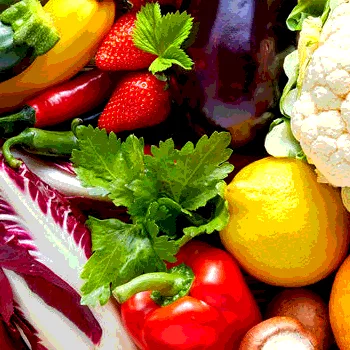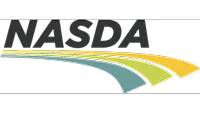Federal Agency Cooperation in Protecting the Domestic Food Supply Chain

Earlier this year, the U.S. Food and Drug Administration (FDA) and the U.S. Department of Agriculture (USDA) announced a memorandum of understanding (MOU) to help prevent potential disruptions to the food supply chain, particularly fruit and vegetable processing plants, resulting from the coronavirus disease 2019 (COVID-19) pandemic.
In a joint statement, USDA Under Secretary for Food Safety Mindy Brashears, Ph.D., and FDA Deputy Commissioner for Food Policy and Response Frank Yiannas noted that the MOU is “an important preparedness effort” due to the summer peak harvesting seasons, when many fruits and vegetables grown across the United States are sent to FDA-regulated facilities to be frozen or canned.
The MOU put in place a process by which FDA and USDA can communicate and make determinations about cases where the USDA can exercise its authority under the Defense Production Act (DPA) with regard to certain domestic food resource facilities that manufacture, process, pack, hold, grow, or harvest food and that fall under FDA’s jurisdiction.
Under the MOU, FDA is charged with:
• Monitoring the integrity and adequacy of the domestic food supply subject to FDA regulation
• Collaborating with stakeholders to identify potential food supply chain disruptions
• Directing FDA-regulated entities to applicable guidance
• Assessing existing and potential disruptions to the domestic food supply
• Educating stakeholders about the MOU and the potential for use of DPA authority to protect the domestic food supply chain
• Contacting USDA if it finds a potential disruption in order to discuss appropriate action
For its part, under the MOU, USDA is responsible for:
• Retaining exclusive delegated authority to issue DPA orders or invoke DPA authorities with regard to food resources and domestic food resource facilities
• Collaborating with FDA when notified of potential disruptions
• Consulting with FDA to issue orders related to food resources and food resource facilities
In addition to protecting the U.S. food supply, the MOU was also aimed at ensuring worker safety. In their joint statement, Dr. Brashears and Mr. Yiannas emphasized the need for essential workers in food facilities and retailers to continue to work safely, by ensuring that the food and agricultural industry is operating in accordance with federal worker safety guidelines. For this purpose, the two agencies are also coordinating with other federal partners to assist the food and agriculture industry in addressing shortages of personal protective equipment, cloth face coverings, disinfectants, and sanitation supplies.
The MOU provided some additional clarity to an issue that had been pending since the issuance of Executive Order 13917, which was signed by the president on April 28, 2020. Although that document focused almost entirely on the meat and poultry industries, it also contained language authorizing the Secretary of Agriculture to identify “additional food chain resources.” This has led to the question of whether and how such authority might extend to the continued production of food categories that, unlike meat and poultry, fall under the inspection jurisdiction of FDA. As a legal and procedural matter, we have an unusual set of mechanisms here. The DPA was enacted at the time of the Korean War, and its original intent was to set up a system whereby emergency orders could be issued and contracts executed expeditiously in the context of a war effort, as distinct from a public health emergency, such as COVID-19. In addition, the progression from the original Executive Order to the issuance of the MOU has its own set of quirks. This may be an outgrowth of an unusual drafting process, whereby the original Executive Order focused on the particular status of meat and poultry facilities—that operate under the jurisdiction of the Secretary of Agriculture—as critical infrastructure. Nevertheless, because the Executive Order has kept the door open to allowing the Secretary of Agriculture to take other measures that have an impact on such “other food chain resources,” the MOU has effectively dropped the other shoe by giving the Secretary of Agriculture a new grant of authority over operations traditionally overseen by FDA. Although this might have been the simplest way to achieve its purpose, it also inevitably served to generate political speculation. To the extent this MOU stirs the pot of speculation once again about the potential formation of a single food agency, it is worth noting how frequently that pot has been stirred in the past, only to see its contents resettle into their traditional form.
As a matter of substance, it is also worth emphasizing that, to date, no specific orders or other official actions under this authority have been undertaken, and it is reasonable to assume that this will never happen. Nevertheless, in the near term, these actions have clearly given the food industry a critical asset in the public policy arena by underling its essential status as a critical infrastructure. In the longer term, these actions may also have a yet-to-be-determined impact on issues of potential liability if the post-pandemic wave of COVID-19-related litigation emerges. All of that aside, currently, the challenge at hand is to maintain the essential functions of the food industry in a manner that provides appropriate protection of the public health: a challenge that clearly persists to the present day.
Robert Hibbert, Esq., is a partner at Morgan Lewis. Ann Begley, Esq., is a former partner at Morgan Lewis. Maria Kalousi-Tatum, Esq., is an associate at Morgan Lewis.
Looking for quick answers on food safety topics?
Try Ask FSM, our new smart AI search tool.
Ask FSM →








